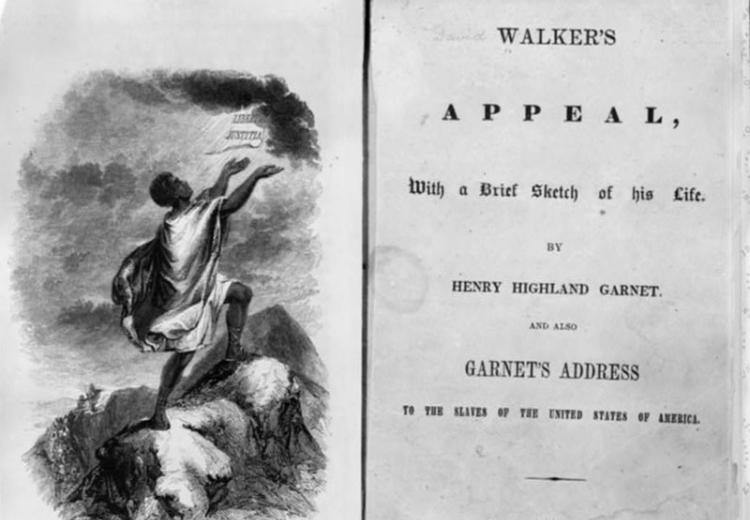David Walker vs. John Day: Two Nineteenth-Century Free Black Men

Title page and frontispiece of the 1830 edition of David Walker's Appeal.
“America is more our country, than it is the whites—we have enriched it with our blood and tears.”
—David Walker, Appeal to the Coloured Citizens of the World
In 1829, David Walker, a free African American, published his Appeal to the Coloured Citizens of the World in Boston, Massachusetts. It invoked the Bible and the Declaration of Independence to challenge the inequities of American slavery. The Appeal was a call to rise up and fight the concept of unapologetically justified violence as divinely mandated if whites refused to repent and embrace their black brethren in Christian fellowship.
Laws were passed in all Southern states prohibiting the distribution of the Appeal, but its powerful use of language resonated with both free and enslaved blacks and terrified most Southern whites. Walker, considered a founding father of Black Nationalism as well as of militant abolitionism, died of natural causes just a year after the Appeal was published—although it was long thought he was assassinated because of the many threats on his life.
In stark contrast to David Walker’s views, the American Colonization Society (ACS) supported immigration to Liberia, a colony for African Americans founded on the west coast of Africa. John Day, also a free black, was a major proponent of colonization and an early Liberian colonist. He argued that African Americans would never achieve equality in the United States. The only peaceful and effective solution for them was to immigrate to Liberia and create a democracy there based on true freedom and equality for all citizens.
In this lesson, students examine Walker’s views in the Appeal and contrast them to the views of John Day. After reviewing background information and primary sources about the two polices, students will argue for or against the most beneficial policy for nineteenth-century African Americans.
Guiding Questions
How did David Walker’s views differ from those of John Day’s?
What is the best choice for nineteenth-century African Americans: to stay and fight for freedom and equality or to immigrate and build a new society elsewhere?
Learning Objectives
Compare and contrast the biographies of David Walker and John Day.
Compare and contrast the two options that free African Americans had in the antebellum period.
